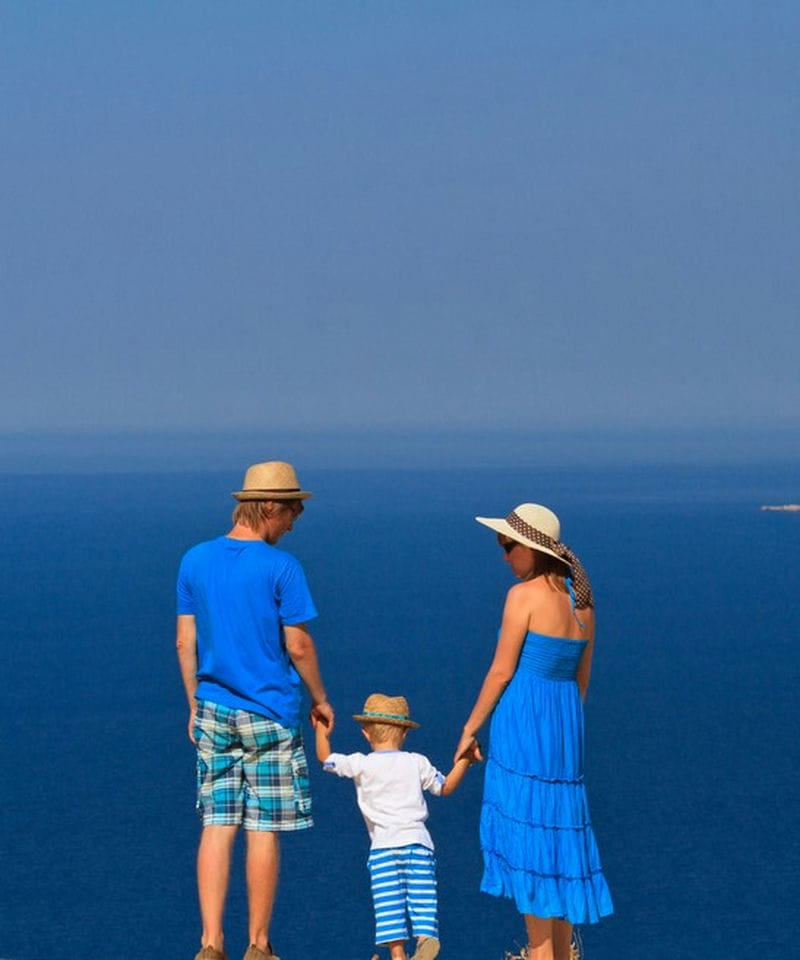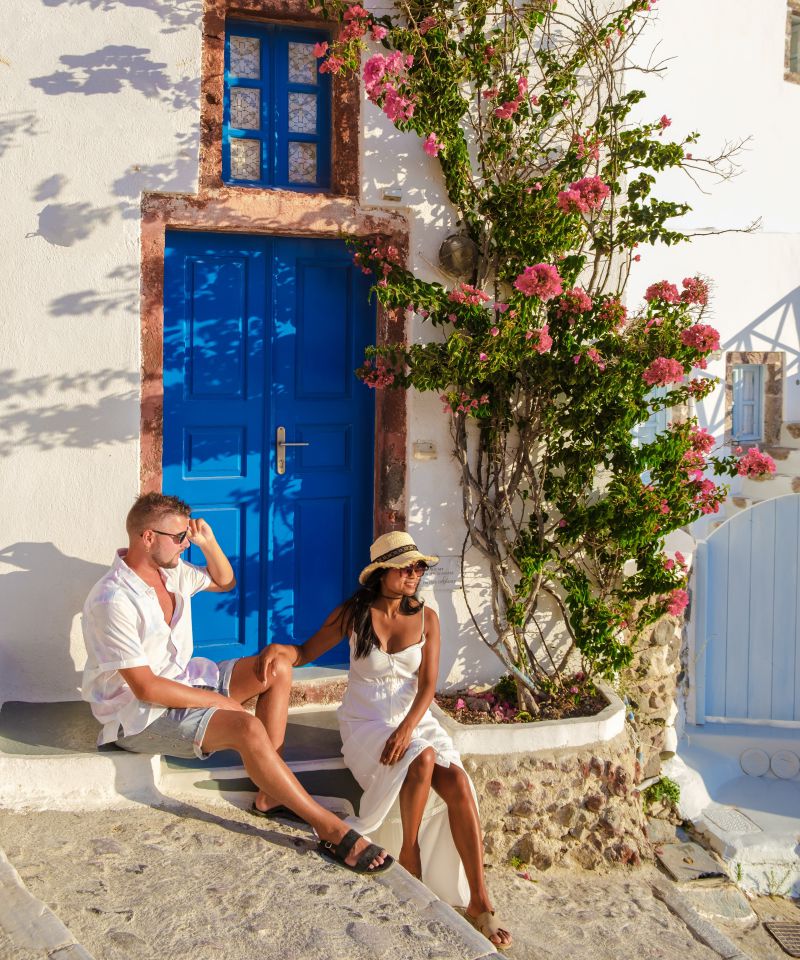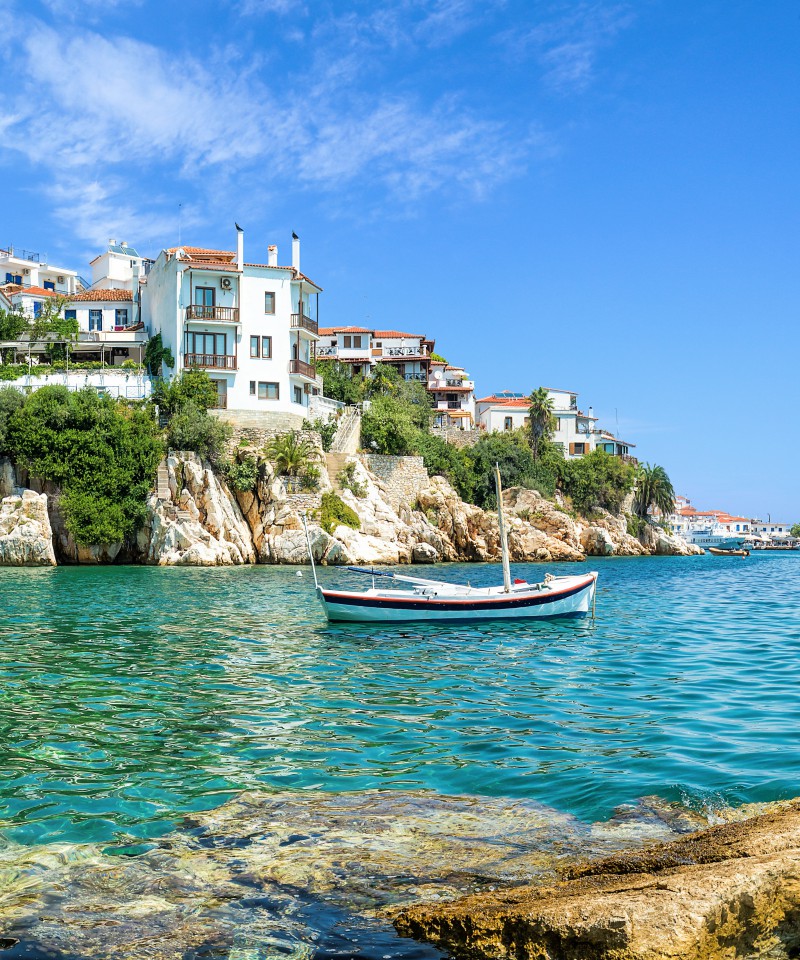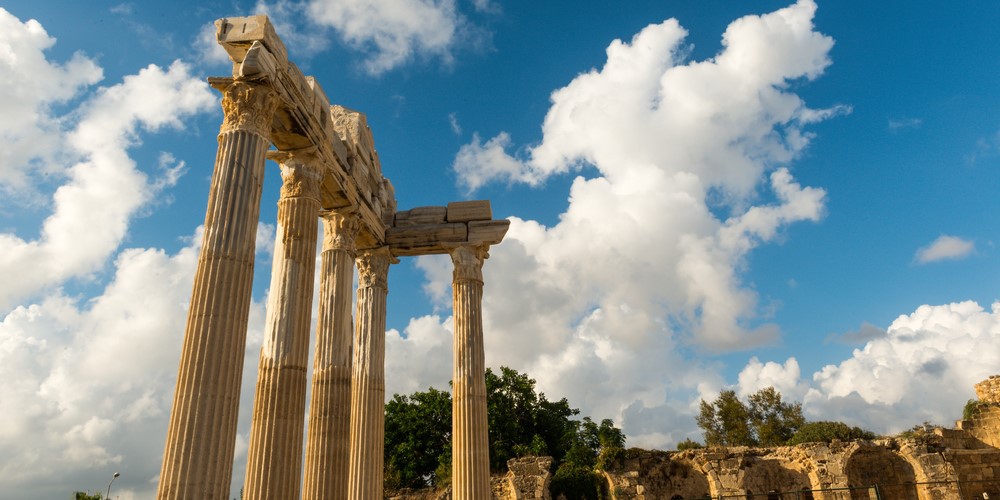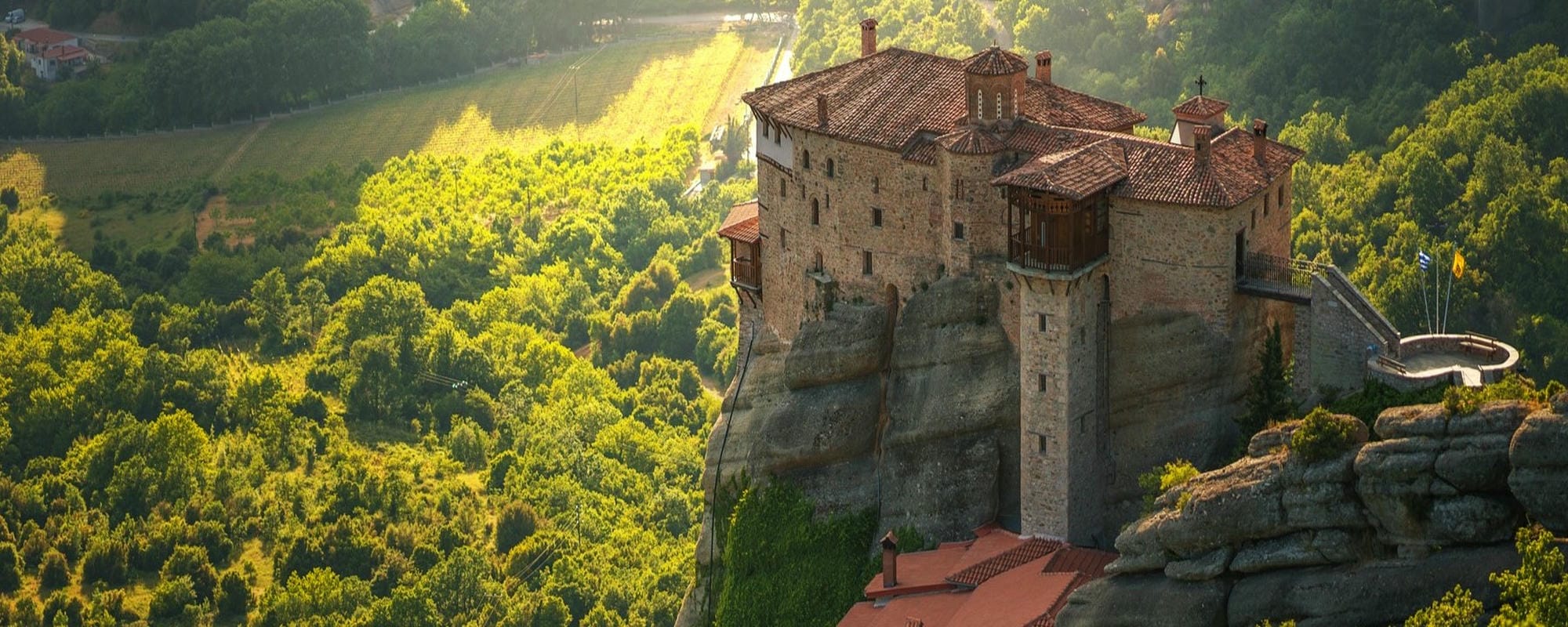
Exploring Religious Tourism in Greece: A Journey of Faith and Heritage
Key Takeaways
- Greece is a leading destination for religious tourism with many historical sites.
- Key attractions include ancient temples and significant Christian monuments.
- Religious events in Greece provide unique cultural experiences.
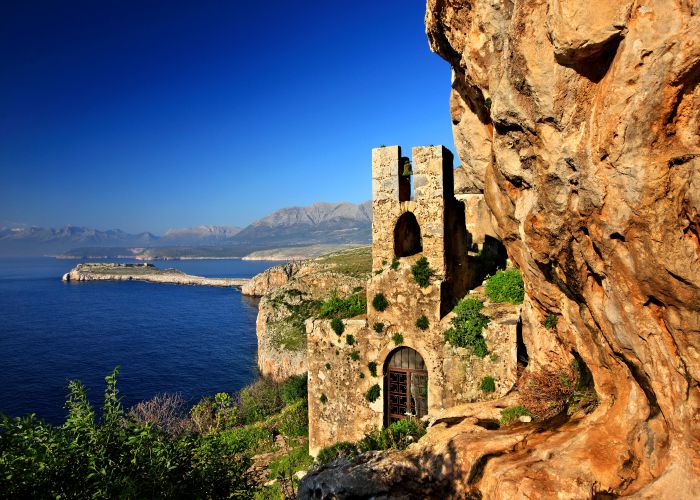
Discover the enchanting world of religious tourism in Greece, where visitors can explore the rich spiritual heritage that spans centuries.
Millions of travelers flock to Greece each year to visit its awe-inspiring churches, monasteries, and historical religious sites.
From the ancient temples dedicated to Greek gods to the magnificent Christian monasteries, Greece offers a diverse array of spiritual landmarks that captivate and inspire.
The history of religious tourism in Greece is deeply rooted in ancient traditions and has evolved over time to include significant Christian monuments.
Sites like Our Lady of Tinos and the impressive Panagia Ekatontapiliani in Paros draw Orthodox visitors from around the globe.
These sacred sites not only connect travelers to Greece's glorious past but also provide a unique opportunity for spiritual reflection.
Greece's religious festivals and events add another layer to the travel experience, offering a glimpse into the vibrant cultural and spiritual life of the country.
Whether it’s joining a local festival or attending a service at a historic church, there's no shortage of meaningful experiences for the spiritually curious traveler.
With its huge variety of sites and experiences, Greece remains a top destination for those seeking both spiritual and cultural enrichment.
Historical Background Of Religious Tourism In Greece
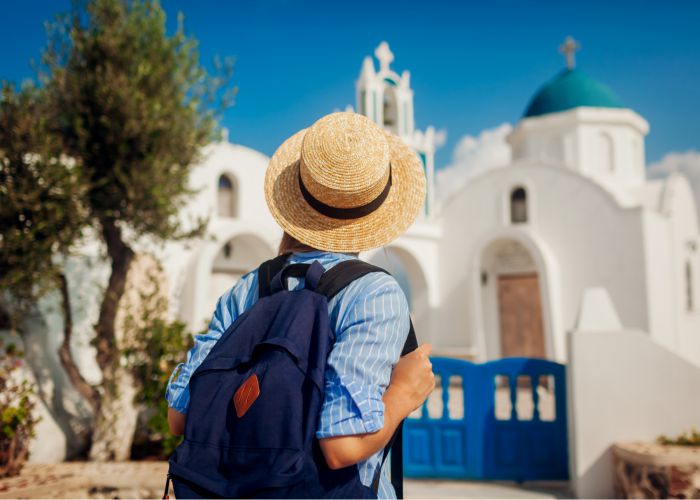
Greece has been a key destination for religious tourism due to its rich heritage.
The country is home to ancient religious sites and the legacy of the Orthodox faith, which attracts visitors worldwide.
Historical events and figures, such as Apostle Paul, fill each page of the Bible with lessons that continue to shape faith and history.
Ancient Religious Sites And Their Significance
Greece boasts some of the world's oldest religious sites. Ancient temples, such as the Parthenon, were not only architectural marvels but also religious centers.
These sites were dedicated to gods and goddesses and attracted pilgrims seeking divine favor.
Byzantine churches, with their intricate mosaics and frescoes, reflect the spread of Christianity.
These ancient sites have not been lost to the test of time, give insight into the religious practices and beliefs of past civilizations, showing their enduring cultural and spiritual importance.
Evolution Of Religious Tourism From Ancient To Modern Times
Religious tourism in Greece evolved from ancient pilgrimages to a structured industry. During the Byzantine era, churches and monasteries became focal points for worship and tourism.
The Orthodox Christian faith played a major role in this shift, as people traveled to witness miracles and relics.
With time, religious tourism expanded to include visits to historical sites and festivals.
Modern religious tourists seek both spiritual experiences and cultural insights, blending tradition with contemporary travel trends.
Impact Of Historical Religious Events On Tourism
Historical religious events in Greece have deeply impacted tourism. Apostle Paul's journeys through Greece significantly shaped the spread of Christianity, making sites like Corinth important pilgrimage destinations.
His influence is still felt today, drawing visitors interested in the roots of the Orthodox faith.
Other events, such as religious councils and conversions, shaped the religious landscape.
The conversion to Christianity and the spread of Orthodox traditions left irreversible marks, continuing to attract those seeking to explore this rich history.
These events highlight the seamless blend of history and spirituality that defines religious tourism in Greece.
Key Religious Sites In Greece

Greece is home to some of the most significant religious sites, deeply rooted in Orthodox Christianity.
From ancient monasteries perched on cliffs to historic basilicas, these sacred places are essential for anyone interested in religious tourism.
Mount Athos
Mount Athos, known as the Holy Mountain, is a spiritual center for Eastern Orthodox monasticism. Located in northern Greece on the Chalkidiki Peninsula, it houses 20 monasteries.
Access is restricted, allowing only male visitors with permits. This age-old site is a hub for prayer and ascetic life, attracting monks and pilgrims.
The monasteries preserve important relics, rare icons, and manuscripts. Mount Athos is not only a spiritual retreat but also a significant cultural and historical landmark of Greece.
Meteora Monasteries
The Meteora Monasteries are a striking sight, with buildings perched on massive cliffs in Central Greece.
Originally, over twenty monasteries were established, but only six remain active today. Dating back to the 14th century, they were built by monks seeking solitude and safety.
Visitors can explore these age-old monasteries, each filled with relics, icons, and frescoes.
The unique landscape and architectural marvels make Meteora a UNESCO World Heritage site, drawing pilgrims and tourists alike.
Church Of Panagia Ekatontapiliani
Situated on the island of Paros, the Church of Panagia Ekatontapiliani is one of Greece’s oldest churches. Its name means "Church of 100 Doors," although the exact origin is shrouded in legend.
Originally built in the 4th century, it has undergone various restorations.
The church complex includes chapels and a baptistery, showcasing a blend of architectural styles. It is an important pilgrimage site, especially during the feast of the Assumption of the Virgin Mary.
Monastery Of Saint John The Theologian
Located on the island of Patmos, the Monastery of Saint John the Theologian is famous for its connection to the Apostle John, who is said to have written the Book of Revelation there.
Founded in 1088, the monastery stands as a fortress on a hill.
Inside, visitors find well-preserved frescoes, a library containing valuable manuscripts, and a collection of icons.
Pilgrims are drawn to the Cave of the Apocalypse, where John received his revelations, making it a profound spiritual destination.
Saint Demetrios Basilica
Saint Demetrios Basilica, located in Thessaloniki, is a significant religious and historical site. Dedicated to Saint Demetrios, the patron saint of the city, the basilica dates back to the 4th century.
It has been reconstructed multiple times due to fires and earthquakes.
The basilica houses relics of Saint Demetrios and features intricate mosaics and paintings.
As one of Greece's largest Byzantine churches, it represents the enduring legacy of the Orthodox faith in the region.
Regional Analysis Of Religious Tourism
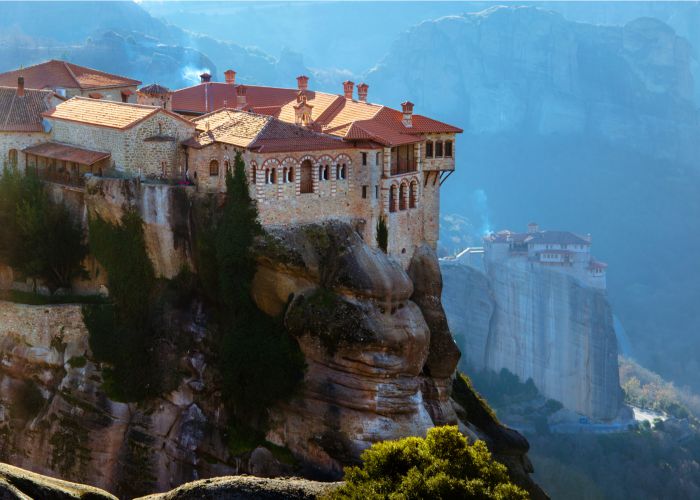
Religious tourism in Greece is deeply influenced by the rich cultural history and diverse regions.
Each area offers unique spiritual experiences and historical sites that attract numerous visitors, contributing significantly to local economies.
Northern Greece
Northern Greece is a significant area for religious tourism, with Mount Athos being a prominent spiritual destination. Known as the "Holy Mountain," it houses many monasteries and attracts Orthodox pilgrims worldwide.
The monastic community, established over a thousand years ago, remains a sacred site exclusive to male visitors, sustaining religious traditions and unique architecture.
In addition, Thessaloniki is home to several important Byzantine churches. The city has a rich Christian heritage dating back to the early days of Christianity.
Pilgrims and tourists visit these sites to explore the religious history and its influence on Greek culture. The preservation of these sites helps maintain the historical and spiritual legacy of the region.
Central Greece
Central Greece offers a mix of religious sites and cultural heritage. Delphi, once considered the center of the world in ancient Greece, attracts visitors interested in both its historical and spiritual significance.
The Sanctuary of Apollo and the ancient theater are two of the key attractions.
In this region, Meteora showcases a unique combination of natural beauty and spiritual practices.
Its rock formations host monasteries that seem to be suspended in mid-air. These monastic buildings have attracted spiritual followers for centuries, emphasizing contemplation and worship.
This blending of dramatic landscapes with spiritual significance draws both pilgrims and tourists alike.
Southern Greece And The Islands
Southern Greece and its islands present diverse opportunities for religious tourism. Tinos is particularly famous for the Church of Panagia Evangelistria, known for its miraculous icon and popular pilgrimage site.
This church plays a central role in religious festivals and attracts worshippers year-round.
Crete, with its rich religious history, offers sites such as the Monastery of Arkadi, which is deeply intertwined with local culture and history.
Many of the Greek islands, including Corfu and the Dodecanese, feature ancient churches and monasteries that continue to attract both domestic and international visitors, offering a glimpse into the island's religious heritage and traditions.
Religious Festivals And Events
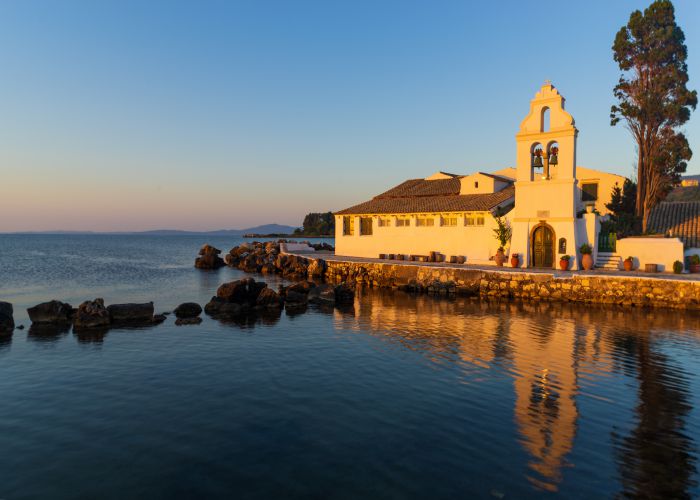
Religious festivals in Greece are deeply rooted in Orthodox traditions. These events attract tourists who wish to experience authentic cultural celebrations.
Festivals often involve vibrant rituals, music, and traditional foods, providing a unique glimpse into Greek life.
Major Religious Festivals Attracting Tourists
Easter, or Pasha, is the most celebrated religious festival in Greece. This event symbolizes the resurrection of Christ and is marked by church services, candle-lit processions, and feasts.
Tourists flock to experience the spectacular Midnight Mass followed by fireworks that light up the sky.
The celebration includes eating traditional dishes like magiritsa, a soup made with lamb.
The Assumption of Virgin Mary on August 15 is another significant festival. This day sees large gatherings in churches, accompanied by music and dance.
Pilgrims visit sites dedicated to the Virgin Mary, immersing themselves in local customs. The vibrant atmosphere, combined with regional delicacies, adds to the allure.
Pilgrimages And Their Significance In Greek Culture
Pilgrimages are an integral part of religious tourism in Greece. They are deeply connected to places of worship, where people seek blessings and spiritual fulfillment.
Pilgrimages to monasteries and churches, such as those on the island of Tinos, draw visitors from around the world.
The Church of Panagia Evangelistria on Tinos is particularly famous for the miracles that pilgrims report after their visits.
These spiritual journeys often coincide with festival days and involve communal activities that enhance the sense of belonging and faith.
Seasonal Events And Their Impact On Tourism
Seasonal religious events play a crucial role in attracting tourists.
These events not only celebrate faith but also mark seasonal changes, offering visitors a chance to experience Greece in different lights.
Winter sees the celebration of the Feast of Saint Nicholas, known for its maritime blessings, while spring celebrates Easter, with its rich traditions and rituals that signify renewal and hope.
Summer and fall host harvest-related festivals, blending religious customs with agriculture.
These events draw tourists seeking to participate in traditional communal life, boosting local economies.
Seasonal events offer unique experiences, encouraging cultural exchange and fostering tourism.
Final Thoughts

Religious tourism in Greece holds significant potential for development and growth.
This form of tourism can become a key component of the nation's tourism industry due to Greece's rich heritage and numerous religious sites.
The presence of important religious monuments, such as monasteries and churches, attracts many tourists each year.
Greece's unique blend of history and spirituality offers visitors not only a religious experience but also a cultural journey.
Efficiency in organizing and promoting religious tourism can enhance local economies, especially in less developed areas. By placing greater emphasis on this tourism sector, Greece can support local businesses and create jobs.
Local and national governments need to collaborate to develop infrastructure and services that meet the needs of religious tourists.
They could improve access to remote religious sites and provide informative resources.
Investments in marketing and promotion can also highlight Greece's religious heritage globally. This strategy would attract not only pilgrims but also those interested in cultural and historical exploration.
In summary, religious tourism can play an essential role in boosting Greece's tourism industry. By leveraging its spiritual sites, Greece could enhance the tourist experience and broaden the appeal of its cultural landmarks.






